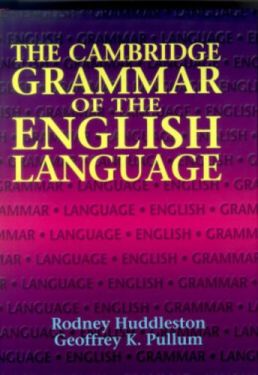- HOME
- INTRO TO THE FORUM
- USE AND MISUSE
- BADLY WRITTEN, BADLY SPOKEN
- GETTING
TO KNOW ENGLISH - PREPARING FOR ENGLISH PROFICIENCY TESTS
- GOING DEEPER INTO ENGLISH
- YOU ASKED ME THIS QUESTION
- ADVOCACIES
- EDUCATION AND TEACHING FORUM
- ADVICE AND DISSENT
- MY MEDIA ENGLISH WATCH
- STUDENTS' SOUNDING BOARD
- LANGUAGE HUMOR AT ITS FINEST
- THE LOUNGE
- NOTABLE WORKS BY OUR VERY OWN
- ESSAYS BY JOSE CARILLO
- Long Noun Forms Make Sentences Exasperatingly Difficult To Grasp
- Good Conversationalists Phrase Their Tag Questions With Finesse
- The Pronoun “None” Can Mean Either “Not One” Or “Not Any”
- A Rather Curious State Of Affairs In The Grammar Of “Do”-Questions
- Why I Consistently Use The Serial Comma
- Misuse Of “Lie” And “Lay” Punctures Many Writers’ Command Of English
- ABOUT JOSE CARILLO
- READINGS ABOUT LANGUAGE
- TIME OUT FROM ENGLISH GRAMMAR
- NEWS AND COMMENTARY
- BOOKSHOP
- ARCHIVES
Click here to recommend us!
READINGS IN LANGUAGE
This section features links to interesting, instructive, or thought-provoking readings about the English language and related disciplines. The selections could be anywhere from light and humorous to serious and scholarly, and they range widely from the reading, writing, listening, and speaking disciplines to the teaching and learning of English.
Office-speak tells a lot about how workers view their lives
In “The Origins of Office Speak,” an article in the April 24, 2014 issue of The Atlantic, the magazine’s associate editor Emma Green writes about the history and evolution of work in the Western world as reflected by the plethora of corporate buzzwords that have enriched the English lexicon since the Second Industrial Revolution at the turn of the 20th century.

OFFICE-SPEAK ARTWORK FROM ATLANTIC.COM
Green says that different industries developed their own tribal vocabularies—pejoratively known as corporate jargon or office-speak—that to the uninitiated may seem meaningless as to be described as “bullshit,” but she says that they actually reveal a lot about how workers think about their lives. Think of such facetious-sounding buzzwords as “paradigm shift,” “multi-task,” “streamline,” “bottom-up” vs. “top-down,” “unplug,” “bleeding edge,” “run it up the flagpole,” “boil the ocean,” and “low-hanging fruit” as well as acronyms like “GIGO” (for “Garbage In, Garbage Out”) and “VUCA” (for “Volatility, Uncertainty, Complexity, and Ambiguity”), and they would likely summon compelling images of the evolving management mindsets or work ethic that engendered them over the years.
“But this seems to be the irony of office speak,” Green argues. “Everyone makes fun of it, but managers love it, companies depend on it, and regular people willingly absorb it. As [UC Berkeley linguistics professor Geoffrey] Nunberg said, ‘You can get people to think it’s nonsense at the same time that you buy into it.’ In a workplace that’s fundamentally indifferent to your life and its meaning, office speak can help you figure out how you relate to your work—and how your work defines who you are.”
Read Emma Green’s “The Origins of Office Speak” in The Atlantic now!
RELATED READING:
In “English jargon invading the French workplace,” an article that appeared in the May 1, 2014 issue of Telegraph UK, the newspaper’s Paris-based correspondent Henry Samuel reports that France’s language police appear powerless in stemming a flood of English and franglais from invading the office with jargon such as “workshop”, “ASAP,” and “brainstorming.” Samuel observes that the recently published Dictionnaire du Nouveau Français—Dictionary of New French—lists 400 neologisms, about half of them coming from English, that have entered the French language but have not yet been picked up by official dictionaries.
Read Henry Samuel’s “English jargon invading the French workplace” in Telegraph UK now!
ANOTHER READING OF INTEREST:
Serious students of the English language would do well to check out The Cambridge Grammar of the English Language, a reference work by a team of linguists led by Rodney Huddleston and Geoffrey K Pullum (2002: Cambridge University Press, 1,860 pages). Billing itself as the definitive grammar for the new millennium, it draws on the findings of modern linguistics research and rejects what it considers the many errors of the older grammar tradition.

The book was critiqued recently by Tom Chivers, Telegraph UK assistant comment editor, in “Are ‘grammar Nazis’ ruining the English language?” in the March 19, 2014 issue of that newspaper; and more extensively shortly after publication by Eric Griffiths, English literature teacher at the University of Cambridge, in “The lavender of the subjunctive” in the July 13, 2002 issue of The Guardian UK.
Read Tom Chivers’ “Are ‘grammar Nazis’ ruining the English language?” in Telegraph.co.uk now!
Read Eric Griffiths’ “The lavender of the subjunctive” in The Guardian.com now!
Read substantial excerpts from The Cambridge Grammar of the English Language in PDF now!
Click to read comments or post a comment
View the complete list of postings in this section
(requires registration to post)





